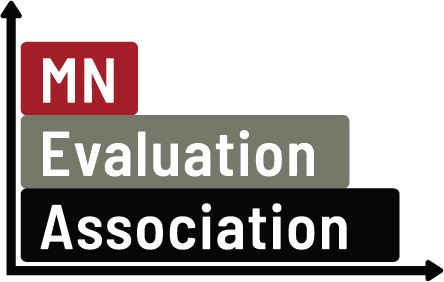Connect. Learn. Community. |
Social Justice & Evaluation
Even though more people of color are entering the field of evaluation, white professionals are still the majority. The implicit biases of white evaluators are part of our history, our body of research and practices. Knowing this, we must step-up, build awareness and intentionally change our practice. We must address our history, our own implicit bias, and work together to overcome perpetuating inequities.
The resources below provide learning opportunities and evaluation related volunteer opportunities in the following areas: social justice, policing, implicit bias, race and/or evaluation resources related to these topics. If you would like to add resources to this list, please email us at info@mneval.org.
Sincerely, MNEA Board
RESOURCES
Books & Articles
Suggested books from our group to help talk to white folk to learn about privilege, implicit bias and talk about race.
-Burnout The Secret to Unlocking The Stress Cycle
-My Grandmother’s Hands
-White Fragility -White Fragility
Books & Articles related to Evaluation
-Continuing the Exploration of US Evaluation History during the Pre-Brown v. Board of Education Era
-Definitional Tension: The Construction of Race In and Through Evaluation
-Emergence Collective: A guide about conducting evaluations during times of crisis.
-Evaluation Roots Reconsidered: Asa Hillard, a Fallen Hero in the "Nobody Knows My Name" Project, and African Educational Excellence
-Fresh Spectrum: Chris Lysy takes a critical look at the field of evaluation in light of George Floyd's murder, the uprising/community response, and how we need to rethink our work as evaluators/a field.
Course
-2020 Intro to Racism and White Privilege Webinar Course: Free online course offered by People's School of DC
Resources
-The Beauty of Antiracism: Flow charts showing antirascism resources and how they intersect with faith, history, and other interest areas
-Trevor Noah’s Video: Social contracts and one-dimensional labeling (May 2020)
-MPD150: Books, articles, essays, news items, toolkits, and much more if you’re looking to learn more about what a world without police might look like, and how we might get there.
Statistics and Race
-Besag, F. P. (1981). Social Darwinism, race, and research. Educational Evaluation and Policy Analysis, 3(1), 55-69.
-D'Ignazio, C. & Klein, L. F. (2020). Data Feminism. Boston, MA: The MIT Press. 2020 Garcia, N. M., López, N. & Vélez, V. N. (2018).
-QuantCrit: Rectifying quantitative methods through critical race theory. Race, Ethnicity, and Education, 21:2, 149-157, DOI: 10.1080/13613324.2017.1377675
-Zuberi, T. & Bonilla-Silva, E. (eds). (2008). White Logic, White Methods: Racism and Methodology. UK: Rowman & Littlefield Publishers
-Zuberi, T. (2001). Thicker Than Blood: How Racial Statistics Lie. United Kingdom: University of Minnesota Press.
-Ibram X. Kendi (who is an academic) has discussed this in non-academic spaces, as well: https://www.democracynow.org/2019/8/13/ibram_x_kendi_intelligence_tests_education
https://diverseeducation.com/article/49830/
Volunteer
-Campaign Zero
Do you know of additional groups or resources worth highlighting? Contact us at: info@eval.org.
Minnesota Indigenous Nations Resources
Native Governance Center - https://nativegov.org
Information about Treaties - https://treatiesmatter.org/index.php
Language Matters: How to Talk about Native Nations - Video


